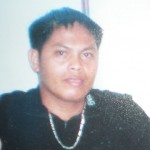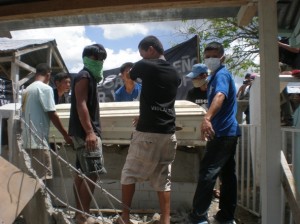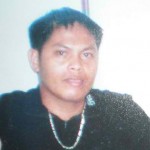By JOSEPH ARNEL DELIVERIO
Sibugay Express

IPIL, Zamboanga Sibugay.—The Commission on Human Rights is trying to put together pieces of the puzzle surrounding the mysterious death of Gregan Cardeño, a Filipino who allegedly committed suicide last February inside the barracks of American soldiers taking part in the Balikatan exercises.
A team from the CHR central office in Manila led by Commisioner Jose Manuel Mamauag arrived in Ipil late last month to exhume Cardeño’s body, conduct a new autopsy, and send out subpoenas to persons and agencies Cardeño might have had contact with before his death.
Joining the CHR Manila team were their counterparts from Iligan City and members of the human rights groups Karapatan, Kawagib and the Initiative for Peace Mindanao.
Cardeño, of Barangay Sanito, this town, had been hired to work as an interpreter for American soldiers. On Feb. 2, his second day of work, he allegedly killed himself in his room at the U.S. soldiers barracks inside the 103rd Brigade Headquarters in Datu Ranao town, a few kilometers from Marawi City.
Cardeño’s family believes there was foul play.
The first autopsy conducted by the medico-legal team of the National Bureau of Investigation Region 9 found the cause of death “consistent with asphyxia by ligature.”
The autopsy report, dated March 4, found “scalp hematoma three in number” along with abrasions and puncture wounds in the arms and feet. Photos of his cadaver also showed that his scrotum was enlarged.
The family asked for a second autopsy, saying wounds not related to suicide were also found in other parts of his body but not included in the autopsy report.
According to the testimonies of his relatives, a military chopper ferried the 33-year-old Cardeño from Edwin Andrews Airbase in Zamboanga City to Cotabato City in the early morning of Feb. 1 to begin his work with the U.S. troops.
He had indicated in his application form that he wanted to work as security guard, but Skylink
Security Agency and General Services, his employment agency, said he was hired as an interpreter for American soldiers under the Joint Special Task Force of the Philippines, more popularly known as Balikatan.
He signed his contract with Skylink the day before he left.
The next morning, Cardeño called his sister, Carivel, to tell her that he was brought instead to a military camp in Marawi City where he said he was the only Filipino among American soldiers.
He complained that his actual work was not what was indicated in his contract. He stopped short of saying what exactly he was doing, his sister said, but pleaded with her to contact Skylink to have him pulled out. Cardeño hinted he could die if he stayed.
Skylink, however, could not take Cardeño back because he still had a cash advance to settle. Cardeño was supposed to receive a hefty salary of P48,000 a month.
At 4 p.m., Cardeño’s wife Myrna got a call from her husband who said, between sobs, “Lisud kaayo akong nasudlan (I’m in a very difficult situation).”
When Myrna replied, “Uli na lang dire (Just come home),” he said, “Kung mouli ko, madawat pa kaha ko ninyo (If I come home, will you still accept me)?”
Cardeño died around midnight, the Marawi police said.
A month later, the Mindanao-based human rights group Kawagib, the CHR Iligan City and family members conducted a fact-finding mission to investigate Cardeño’s death.

Kawagib secretary-general Bayla Indayla called the mission futile and inconclusive.
She said the room where Cardeño was found had been contaminated. Another member of the fact-f
inding team said they were barred from entering the crime scene.
Indayla quoted the police as saying Cardeño was lying on the floor when they arrived and that he was removed by the Americans from where he was supposed to be hanging by a bedsheet.
Cardeño is said to have left behind a suicide note scribbled in his blue book. It said, “Please God, forgive me, save my soul.”
An officer of the 103rd brigade where the U.S. troops were stationed told the fact-finding mission the area of the Americans was “restricted” and he was not exactly aware of their daily activities, Indayla said.
The American officers, on the other hand, have not offered any explanation for Cardeño’s death, adding that whatever questions should be coursed through Skylink.
On March 11, human rights groups formally lodged a complaint before the office CHR chair Leila De Lima.
On March 12, about 100 residents of Ipil, composed of Cardeño’s family and friends, members of nongovernment organizations, church and human rights groups conducted a march-rally condemning Cardeño’s death and seeking truth and justice.
Photos of Cardeño’s wounded body served as backdrop, as human rights advocates spoke and called for the review of the Visiting Forces Agreement and the eventual withdrawal of the American forces in the Philippines .
Friends and fellow members of his church congregation said Cardeño was a good man who could not have committed suicide.
Meanwhile, a member of the CHR Region 10 said that among those sent summons were Skylink Security Agency and General Services, where Cardeño signed his contract; the Marawi police, who were the first to arrive at the crime scene; the 103rd Brigade in Camp Ranao where Cardeño stayed until his death; and the American troops deployed inside Camp Ranao.
Most likely, the CHR member said, the heads or officers of these agencies will be charged with the criminal offenses as accessories after the fact or for obstruction of justice.
Meanwhile, he added that his team could not make any conclusions about what really happened to Cardeño. The CHR will proceed to Marawi City for further investigation.
Aside from his wife Myrna, Cardeño left behind three young children.
